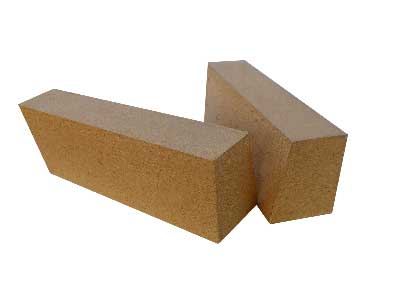The clay brick is made of clay clinker as orthopedics, and the refractory clay is used as a binder to make a refractory product having an Al2O3 content of 30 to 48%. The raw material for making clay bricks is clay minerals, which are generally classified into hard clays and soft clays. In the refractory manufacturing process, most of the former is used as a clinker after calcination; after adding water, the latter has good plasticity, is easy to be sintered, and is often used as a binder.
Due to the large range of chemical composition, the production methods are different, and the difference in firing temperature makes the properties of clay bricks change greatly. The refractoriness of the clay brick is above 1600 ° C, but the load softening start temperature is very low, as long as 1250 ~ 1300 ° C, and the distance between the load softening start temperature and the final temperature is very large, the distance is about 200 ~ 250 ° C. The nature of clay bricks is very important, making clay bricks suitable for many high temperature thermal equipment despite their low refractoriness. Clay bricks are more resistant to rapid cooling and heat, and the number of water cooling at 850 ° C can reach 10 to 25 times.

The content of Al2O3 in clay bricks is generally more than 40%, and the content of Fe2O3 is less than 2.0 to 2.5%. The clinker in the furnish is 65-85%, and the combined clay is 35-15%. The pulverized bonded clay and the ground clinker are mixed and ground, and then combined with the granular clinker to prepare a semi-dry mud, which is formed by high pressure molding and fired at about 1400 ° C. Clay bricks are weakly acidic at high temperatures, and the ability to resist alkaline slag erosion is slightly poor, but increases with increasing Al2O3 content.
Clay refractories are rich in raw materials, simple in processing and low in price, so they are used more widely than any other refractory materials: for blast furnaces, hot blast stoves, iron furnaces, steel drums and cast steel systems, soaking furnaces, furnaces , non-ferrous metal smelting furnaces, silicate industry, chemical industry kiln and chimneys and flue of all thermal equipment.

